Events
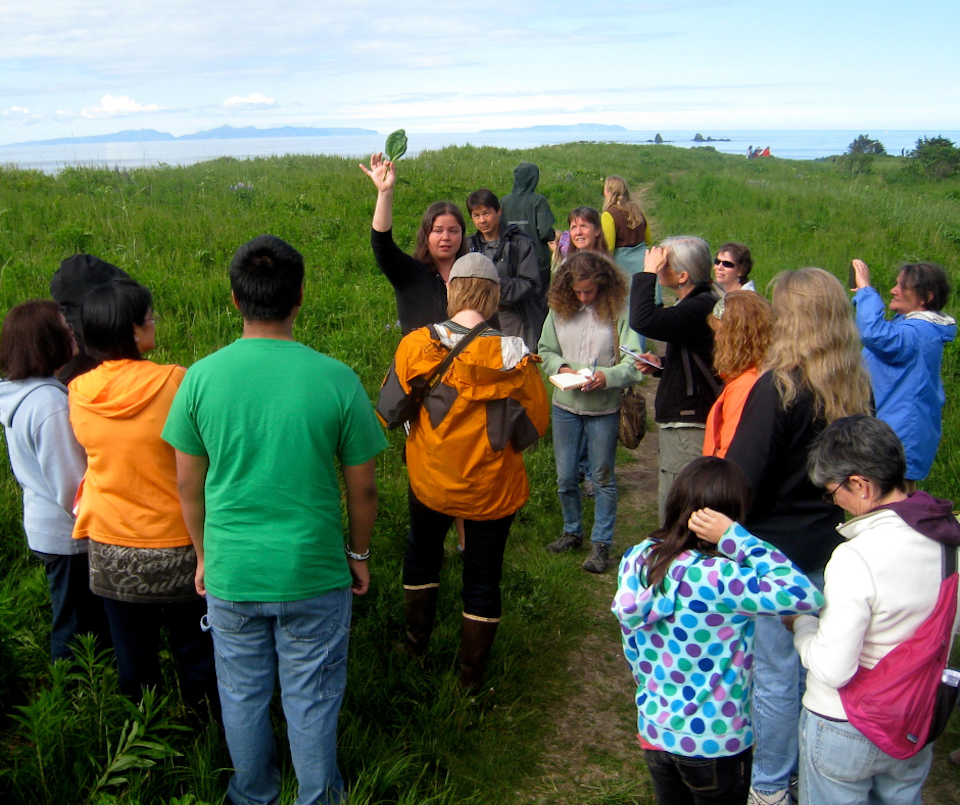
Plant Walk
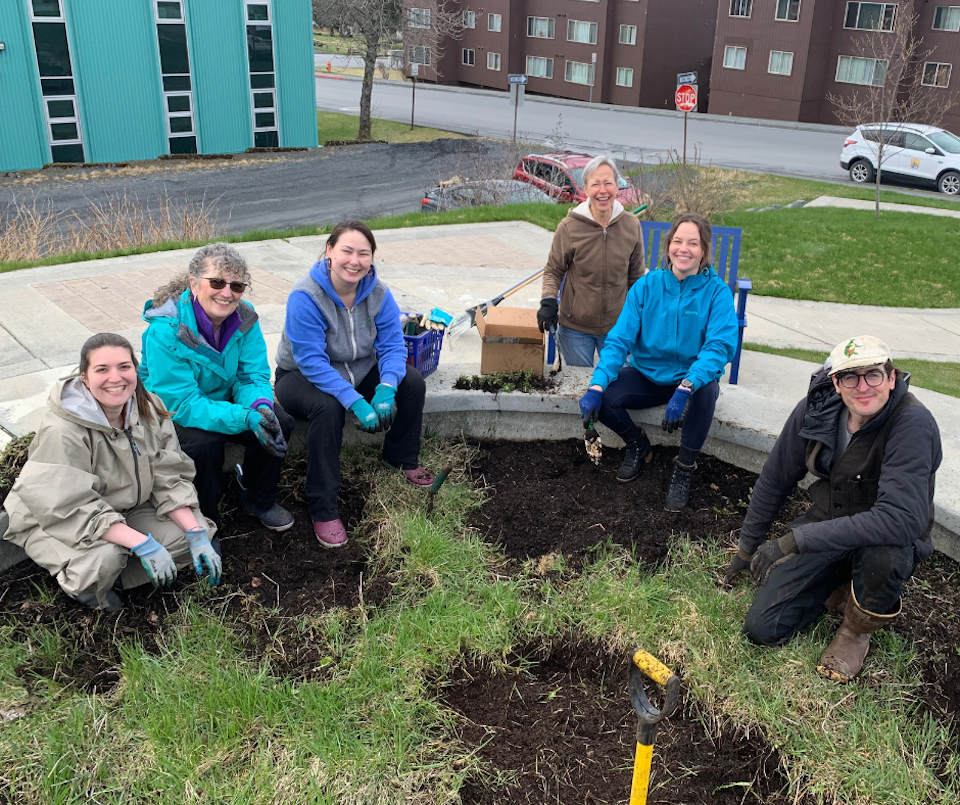
Spring Clean Up Day
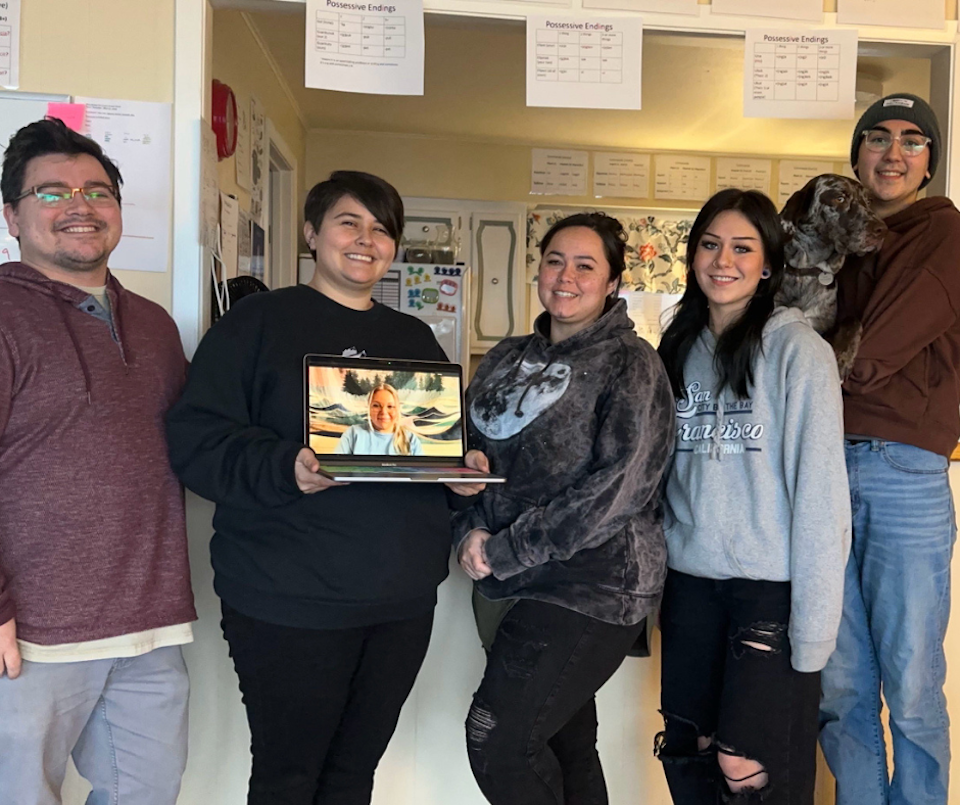
Language Lessons
The Alutiiq Museum welcomes all people of all ages, heritages, and abilities to our events. For more information about an upcoming event, assistance with a special need, or to partner with the museum on an event, please contact Djuna Davidson, 844-425-8844.
Upcoming Events
Click on a date to see the day’s events.
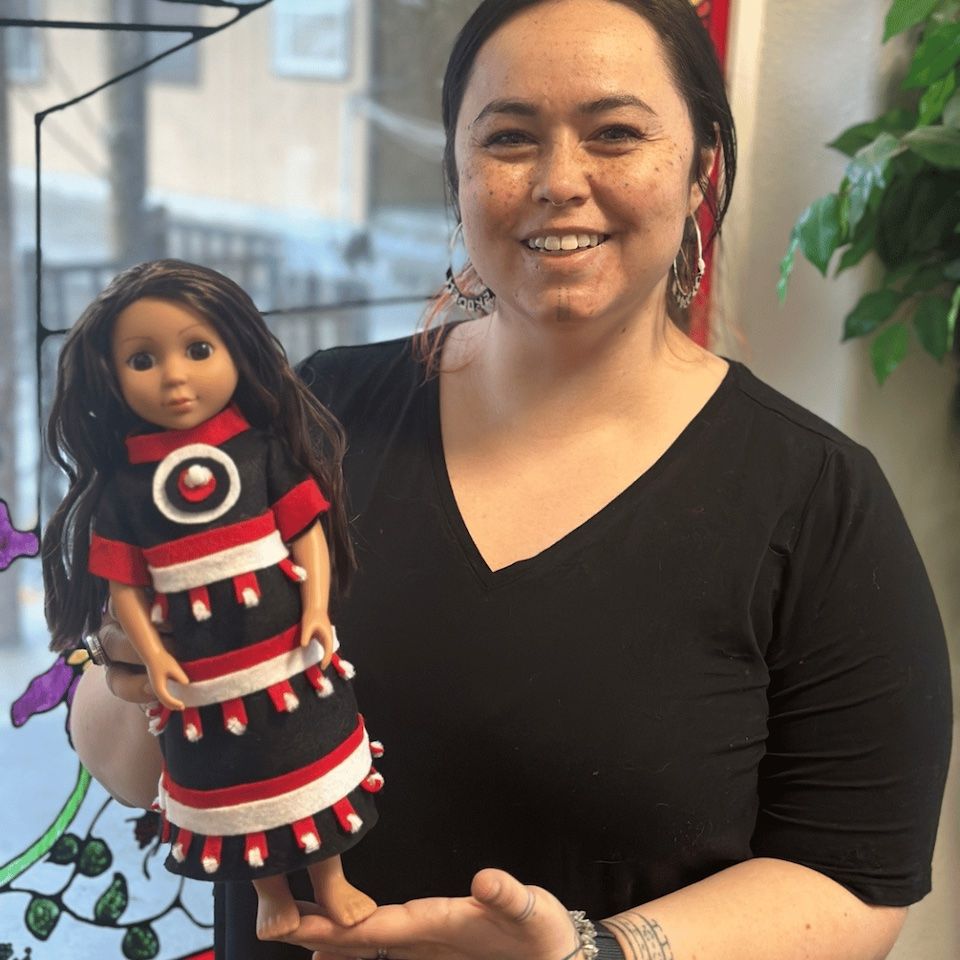
Hanna Sholl with a doll wearing her parka design.
Doll Parka Workshop
WITH HANNA SHOLL
Learn about Alutiiq atkut–parkas and make a parka for a doll. We will provide each participant with a doll, parka-making supplies, and instructions.
Pre-registration is required. There are 15 spots in the workshop. They will be filled on a first-come, first-served basis. We will also keep a waiting list in case of cancelations Please contact Leda Beuthin for assistance.
Saturday, September 21, 10 am – 2 pm

Dehrich Chya and Courtney Carouthers
Indigenous Science in Fisheries
FALL LECTURE SERIES
Presented by
Courtney Carothers, University of Alaska Fairbanks Dehrich Chya, Alutiiq Museum Friday
Friday, October 4, 12:00p m–1:00 pm
Virtual

Trevor Lamb at Karluk Lake
Plant Use from Alutiiq Archaeological Sites
FALL LECTURE SERIES
Presented by
Trevor Lamb, Boston University
Friday, October 11, 12:00p m–1:00 pm
Virtual

Sugpiaq Culture, Watercolor painting by Helen Simeonoff, 2008
Alutiiq/Sugpiaq Cultural Orientation
ONLINE PRESENTATION
The Alutiiq people have lived on Kodiak Island for 7,500 years. Our culture has adapted over time due to environmental, social, and political changes. Staff members provide an introduction in this free presentation open to all. Please pre-register so we can accomomdate all guests.
Thursday, October 17th, Noon – 1:00 pm
In-person with April Counceller
Kodiak National Wildlife Refuge Visitor Center
Registration
Thursday, November 14th, Noon – 1:00 pm
On Zoom with Dehrich Chya
Registration
Thursday, December 19th, Noon – 1:00 pm
In-person with Dehrich Chya
Kodiak National Wildlife Refuge Visitor Center
Registration

Missy Good
Navigating Challenges and Fostering Growth in Alaska’s Mariculture Industry
FALL LECTURE SERIES
Presented by
Missy Good, Alaska Sea Grant
Friday, October 18, 6:00 pm – 7:00 pm
Kodiak History Museum

Moll Odell
Story of a Remote Bear Camp
FALL LECTURE SERIES
Presented by
Molly Odell, Alutiiq Museum
Friday, October 25, 6:00 pm – 7:00 pm
Kodiak History Museum

Beaded cuffs by Kayla McDermott
Beaded Cuff Workshop
WITH KAYLA MCDERMOTT
Learn basic beading techniques and practice your skills as you make a beaded cuff. We will provide the supplies and instruction from Alutiiq Artist Kayla McDermott. Generously supported by the City of Kodiak.
Pre-registration is required. There are 20 spots in the workshop. They will be filled on a first-come, first-served basis. We will also keep a waiting list in case of cancellations. Please contact Chyian Heine for assistance.
Saturday, October 26, Noon – 3:00 pm
Location TBD
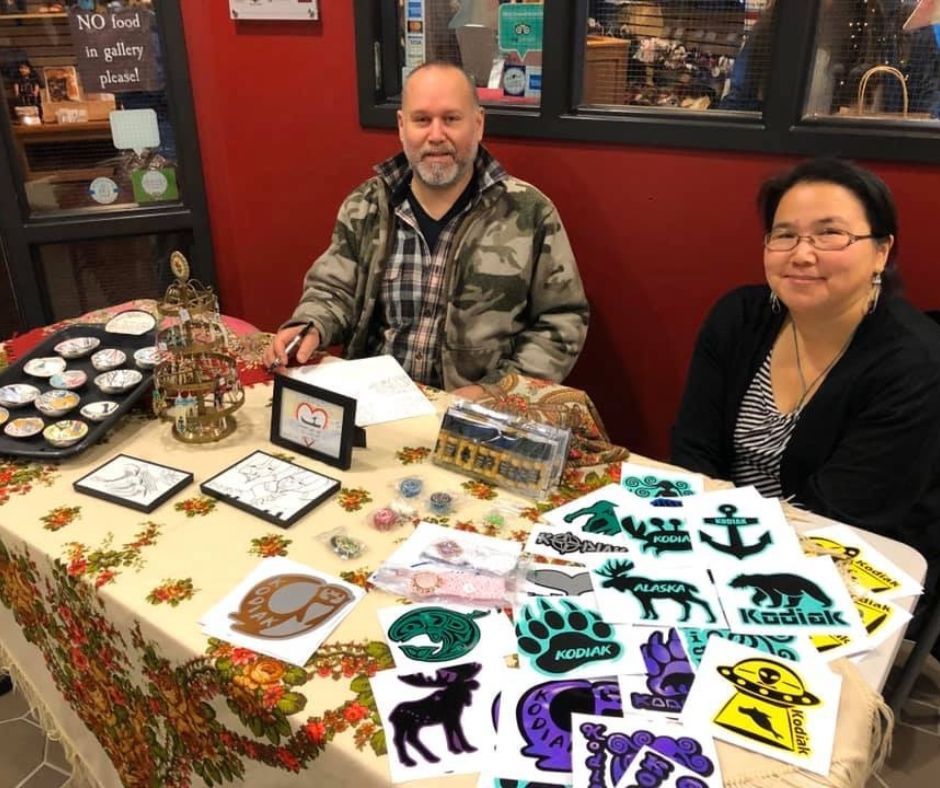
Sperry and Michelle Ash at their holiday bazaar table.
Holiday Bazaar
BUY DIRECTLY FROM LOCAL ARTISTS
Meet Kodiak artists and find unique gifts for everyone on your list at our popular holiday bazaar. Shop Local. Shop Alutiiq.
If you are an artist who would like to reserve a table for the bazaar, please contact Djuna Davidson for assistance.
Saturday, December 7th, 10:00 am – 4:00 pm
Kodiak National Wildlife Refuge Visitor Center
Cultural Support for Community Events
Celebrating and acknowledging Alutiiq/Sugpiaq heritage can be a valuable part of a community event and the museum has resources to help.
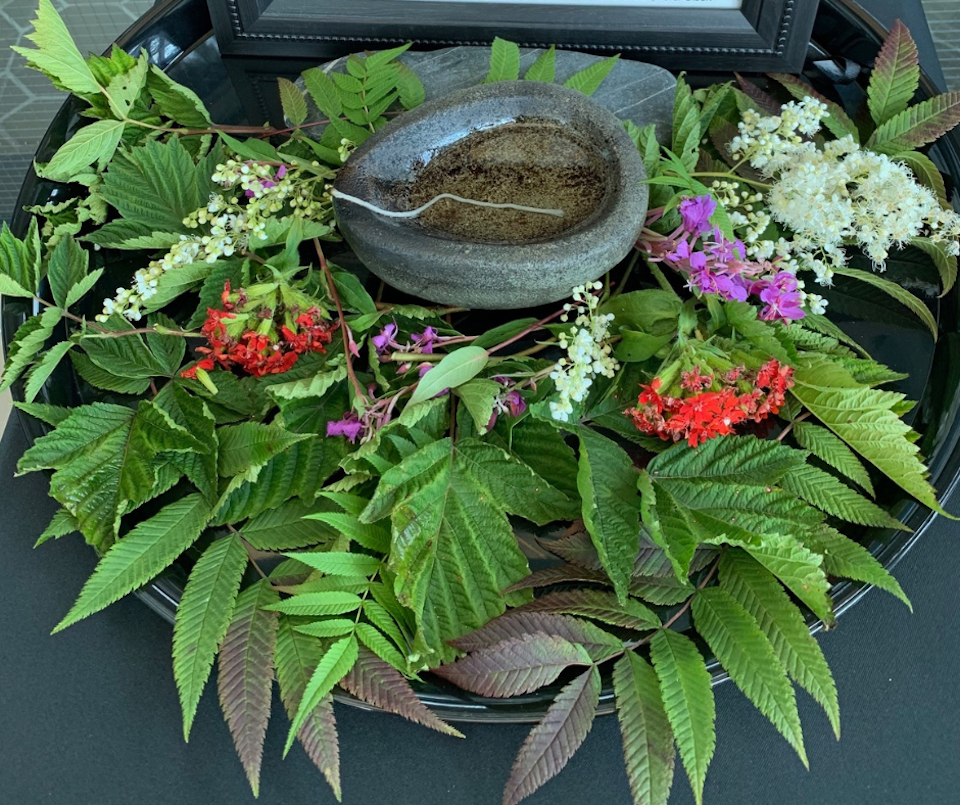
A lamp prepared for lighting
Lamp Lighting
The Alutiiq Museum has ancestral stone lamps that can be checked out for use at a lamp-lighting ceremony. Contact Amanda Lancaster, 844-425-8844, to request the loan of a lamp.
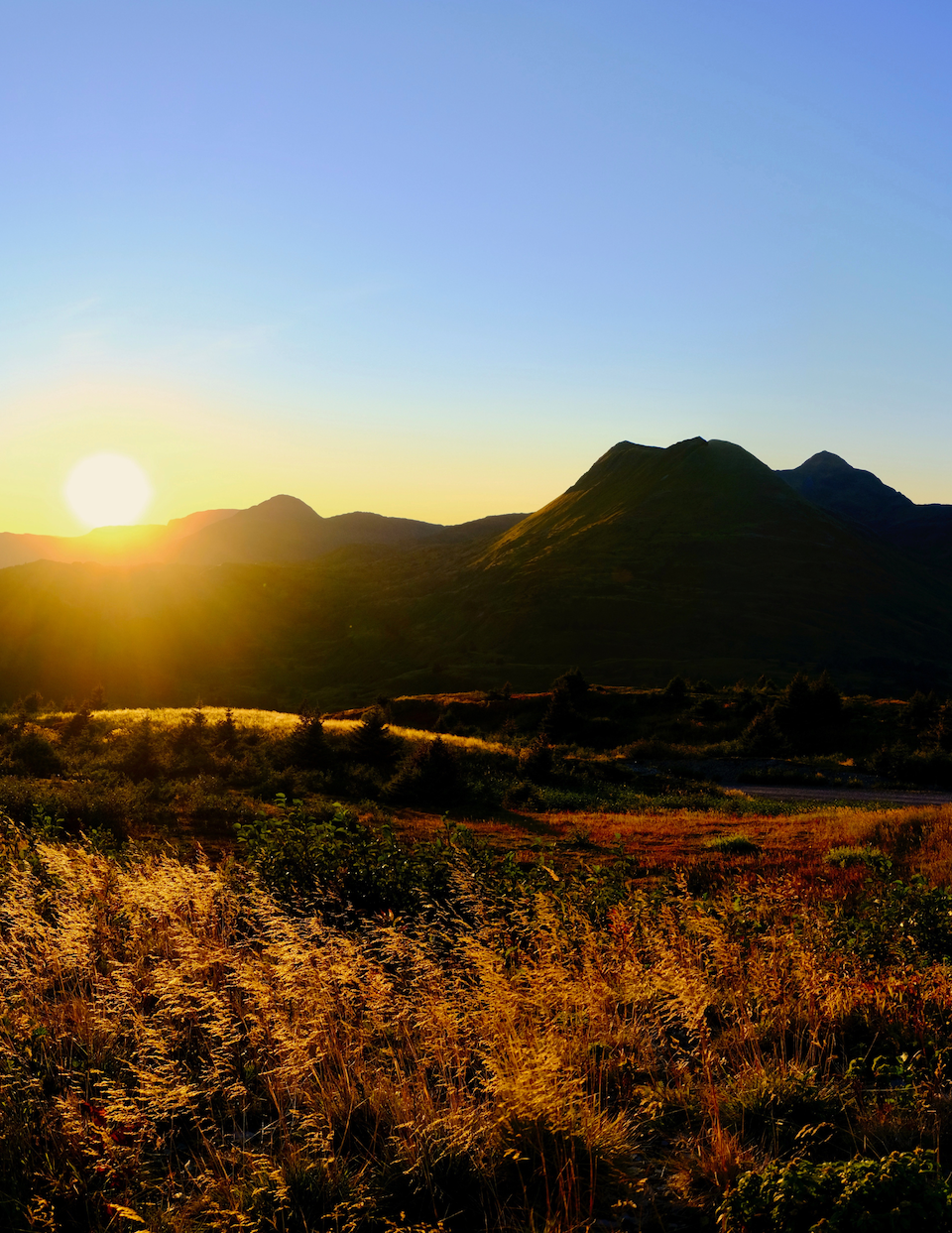
Sunrise over the Kodiak Mountains
Land Acknowledgement
Land acknowledgments offer a commitment to understanding local history and Native homelands, as well as the treaties, tribal status, and governance of an area. Such acknowledgment is typically offered by a visitor to the region or a person who is not a member of the local Native community. This could be a non-Native person or someone from a different tribal nation. There is no single correct way to acknowledge indigenous lands and territories. As such, land acknowledgments should be carefully planned and customized. For example, they can be read aloud at gatherings or meetings, posted in meeting spaces, shared online, and included in printed materials.
